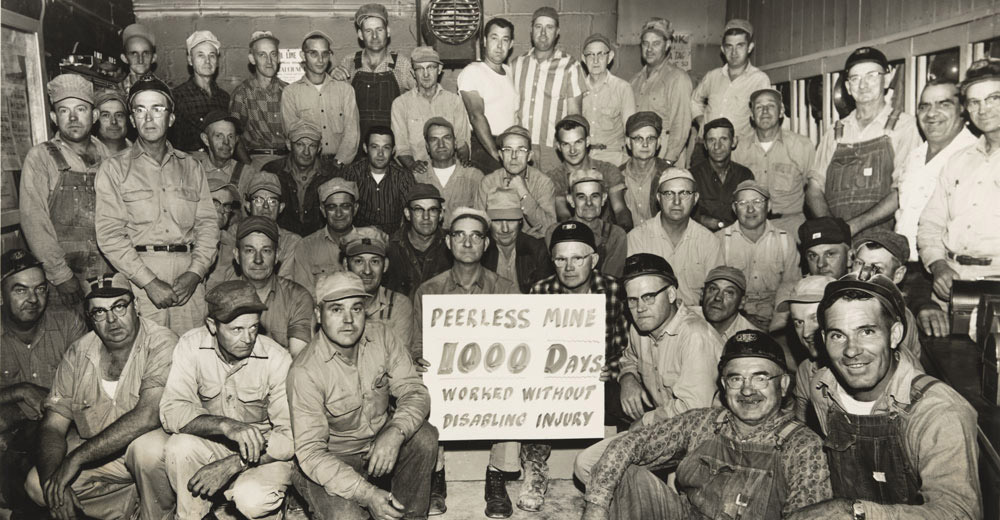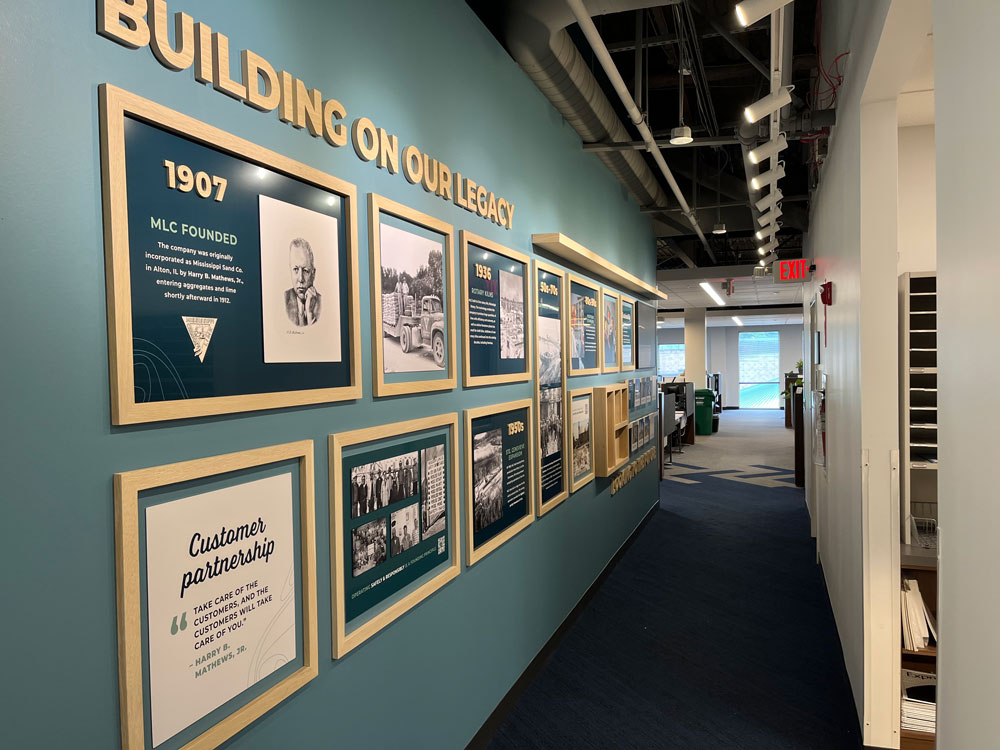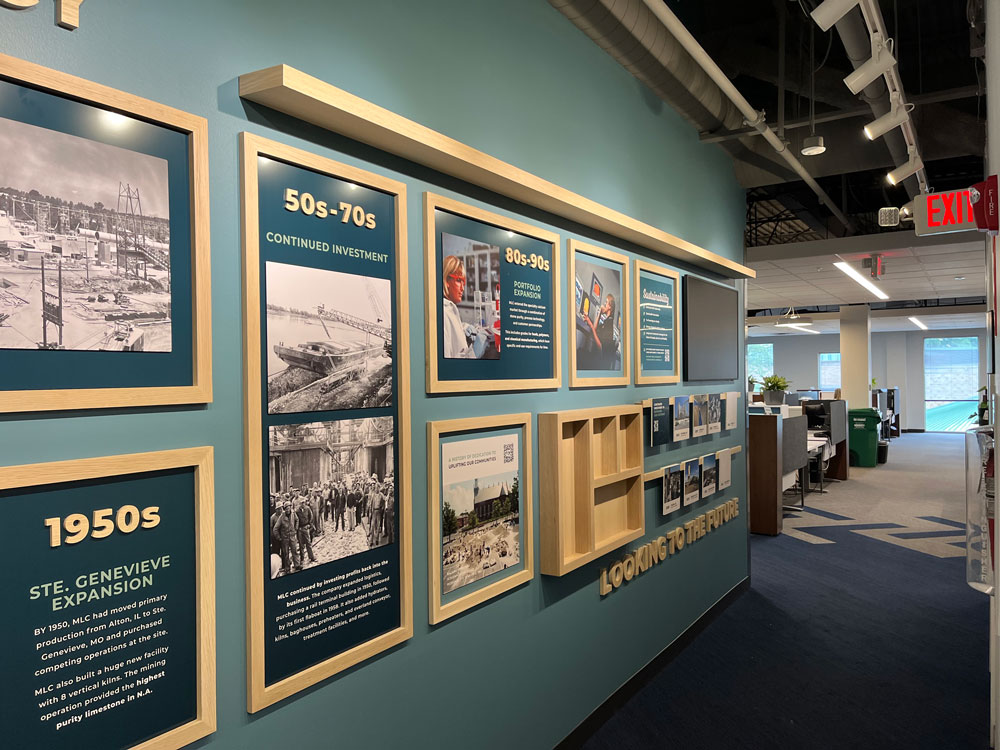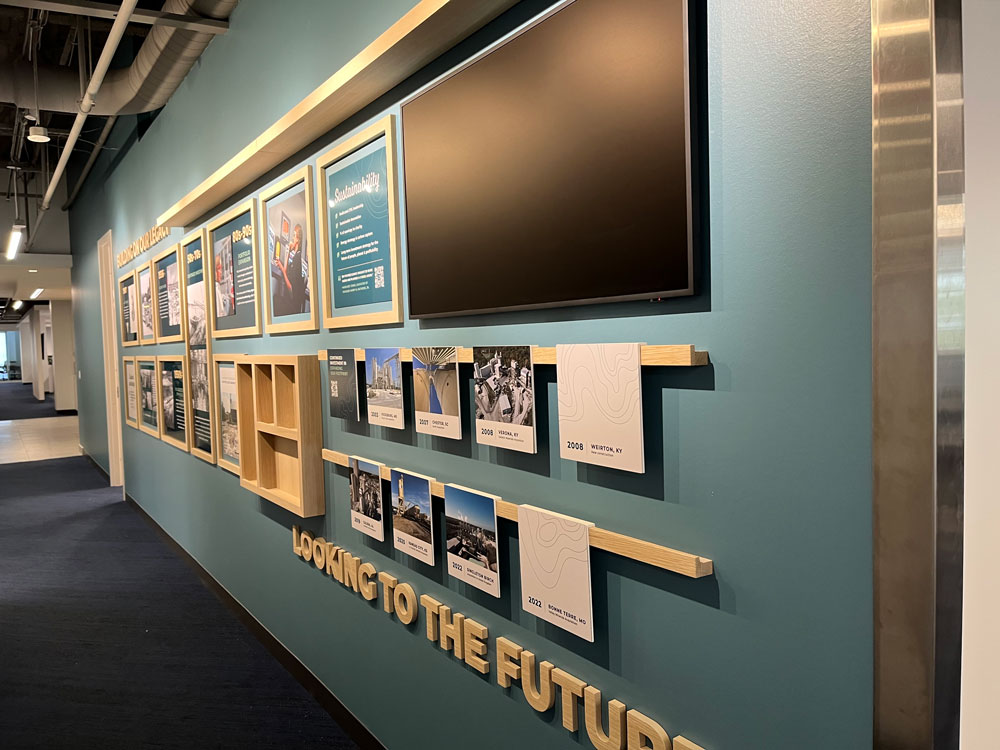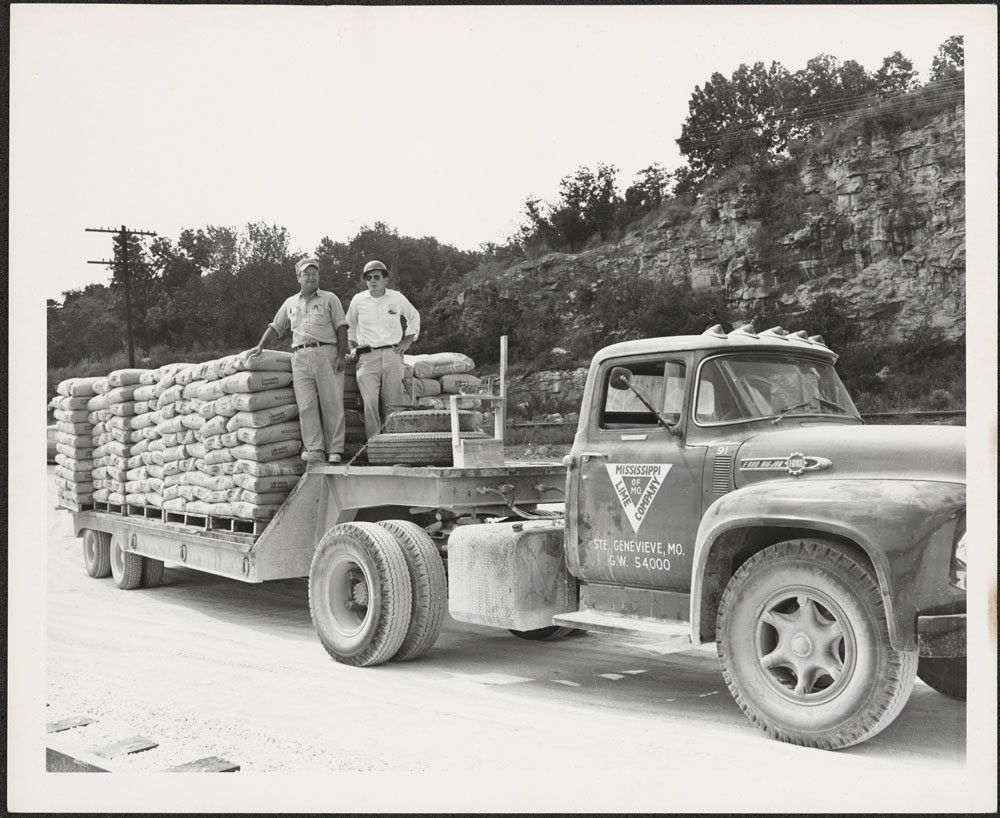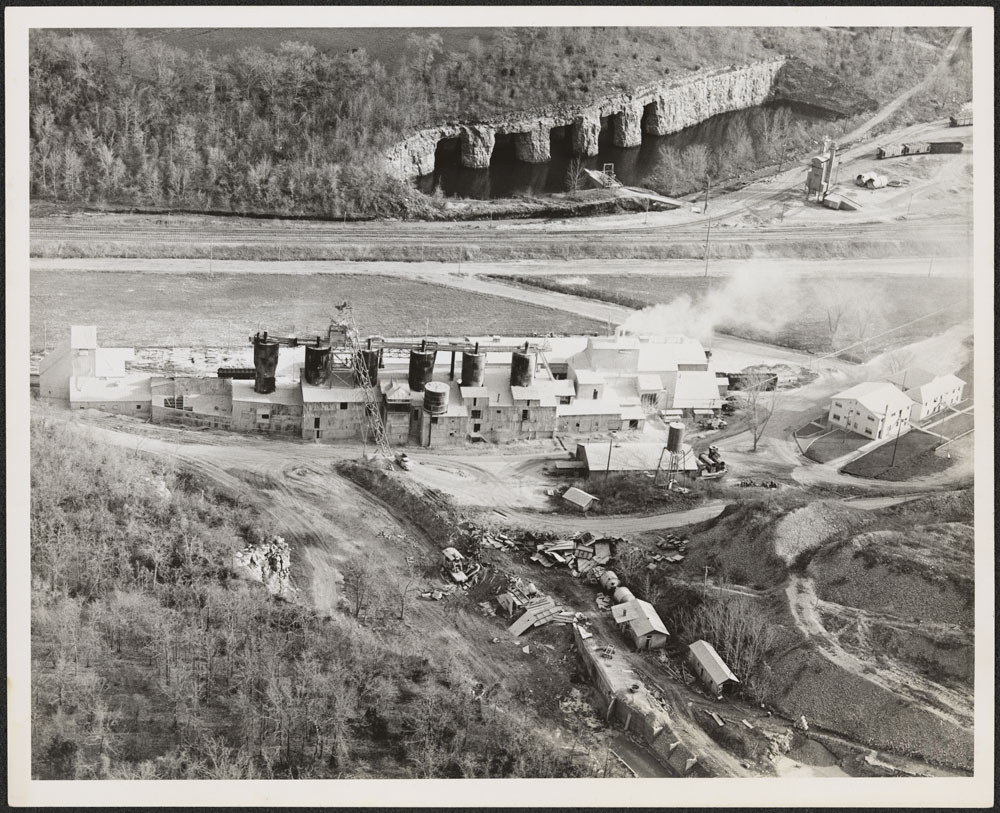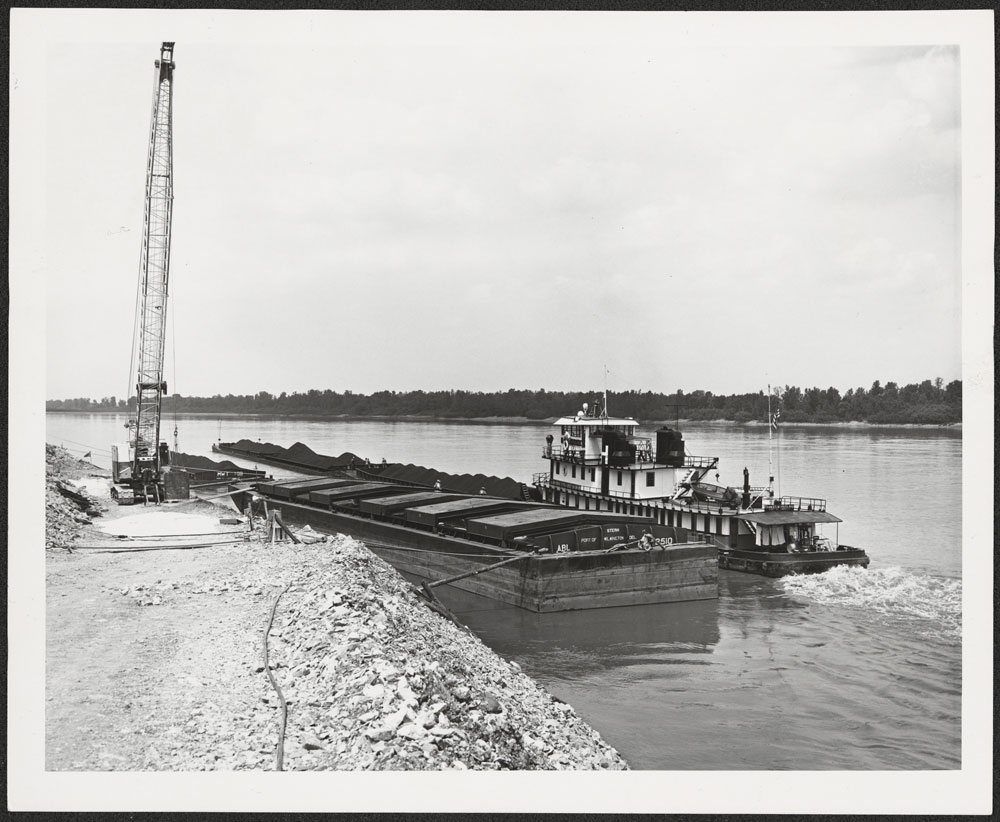Preserving history is valuable, especially for a company over 100 years old owned by the same family. MLC, formerly known as Mississippi Lime Company, embarked on a journey to safeguard its corporate archives earlier this year.
The story begins with MLC’s decision to expand their headquarters office in St. Louis. In the process, they had the opportunity to bring some of their history into the office design, telling the story of MLC. Rather than only preserving the pieces that would be displayed in the office design, MLC saw an opportunity to digitize and preserve their entire archive for future generations.
Digitizing to Preserve Corporate Legacy
Jenna Blankenship, the global communications director at MLC, has been with the company for about 2 and a half years. She played a pivotal role in this project. “We’ve been around since 1907, so certainly a company with a lot of legacy. Trying to track down where all of our historic records and photos were, I found that a lot of them were just stashed in file cabinets and weren’t very well archived or protected. They hadn’t been digitized. There was water damage to some of them, so [our work with Anderson Archival] became a much bigger project because we decided that not only do we need to represent our history in our office branding but find a way to preserve that collection for the future,” Blankenship explains.
Anderson Archival entered the picture with a Google search. “I was looking specifically for a company that was, number one, local to the greater St. Louis area because we didn’t want to risk having to put things through the mail. Number two, we were specifically looking for a vendor that would be able to provide a greater degree of care and had experience with preservation and potentially damaged materials, delicate materials, and that could scan with a higher degree of integrity than a lot of the vendors out there usually do.” According to Blankenship, the firm was “like a perfect match for us.”
With Anderson Archival’s assistance, MLC was able to transform their physical archives into a digital format, ensuring the longevity and accessibility of their historical documents. The digitization process involved meticulous care and attention to detail, allowing MLC to maintain a rich and comprehensive record of their corporate history.
Obviously, the fresh office design was a key component of MLC’s digitization project. That effort has been “wonderful” according to Blankenship. For key photographs, Anderson Archival provided digital files at 1200 dpi (dots per inch, a high resolution). “This enabled us to blow them up to larger sizes so we could have eye-catching displays.”
“We were specifically looking for a vendor that would be able to provide a greater degree of care and had experience with preservation and potentially damaged materials, delicate materials, and that could scan with a higher degree of integrity than a lot of the vendors out there usually do.” — Jenna Blankenship, Global Communications Director, MLC
“We’ve gotten really positive feedback so far on the installation. There’s been a lot of interest in learning more about our historic archives,” says Blankenship. “We have a lot of multi-generational employees. Our VP of Operations Elizabeth Wilkerson has family members that have worked at the company over many decades, and she found a photo of her grandfather from the 1950s that she had never seen before. I thought that was such a special thing that showed exactly why we needed to preserve that legacy.”
Wilkerson is sitting down with MLC’s long-standing employees and retirees. They are reviewing the archives for people they remember. “We have so many employees who have multi-generational connections to the company,” says Blankenship, “and who’ve been with us for 40-50 years.”
This successful collaboration highlights the importance of digital preservation in the corporate world. By digitizing their archives, MLC has not only safeguarded their history but also made it readily accessible for research, reference, and inspiration. This initiative has empowered MLC to continue their mission with a strong foundation rooted in their rich history, built on archival digitization.
MLC was founded in 1907 as Mississippi Sand Company (named for the Mississippi River) by Harry B. Matthews, Jr., the first member of the family which still owns the company through HBM Holdings. “The family itself is really invested in the history and values of the company, ensuring we always do the right thing,” says Blankenship.
Like other family-owned businesses, the digitization of MLC’s archives has revealed family history as well. Blankenship explains, “The family has been very engaged. They were really excited that we did this project because it means they can also have a lot of their family history preserved because it’s very tied up with the company itself.”
Today, MLC is an international supplier of lime and calcium products. “Not a lot of people really think about it, but these materials go into a lot of different markets. It goes into steel, glass, fiberglass, foods, drinking water. It’s used for pollution control technology,” explains Blankenship. MLC operates one of the largest lime operations in the Americas in Southeast Missouri. With ten production locations in the U.S. and U.K., MLC’s position in the industry is secure. “A lot of the companies have that long legacy, but I think we have something really special. We think in very long-term horizons, and we’re really trying to make sure we are forward-looking, but also preserving our history, where we come from, and our roots.”
In addition to preserving MLC’s history, the digital archives revealed it. “There are great photos where you can see historic images of our employees, our lime kilns, our sites as they were expanded over time. We converted from rotary to vertical kilns to rotary and back again. New technologies were introduced. The first barge. It’s just very interesting seeing how some things are very, very different when we were operating in the mid-20th century, the old trucks and uniforms, but some things are very much the same,” explains Blankenship. “There’s a unique feeling of looking at [the past] and recognizing who we are as a company but also seeing how much we’ve evolved.”
In addition to digitizing the archives, Anderson Archival arranged the collection into fresh archival-safe storage solutions, preparing the physical archives for their long-term home in storage. The all-in-one solution that Anderson Archival offered proved to make an impact. “You had experience working with this kind of collection, with these archival materials that need to be treated carefully. Also rehousing them at the end so that they wouldn’t have any more damage over time. That was a huge part of the selection,” says Blankenship. “Through the whole process, it felt like the communication with the team was really great. Anytime there was unexpected things uncovered in the collection, we had a high level of communication to figure out how to pivot or change. Having that flexibility was great. I have nothing negative to say about the whole experience.”
“There’s a unique feeling of looking at [the past] and recognizing who we are as a company but also seeing how much we’ve evolved.” — Jenna Blankenship, Global Communications Director, MLC
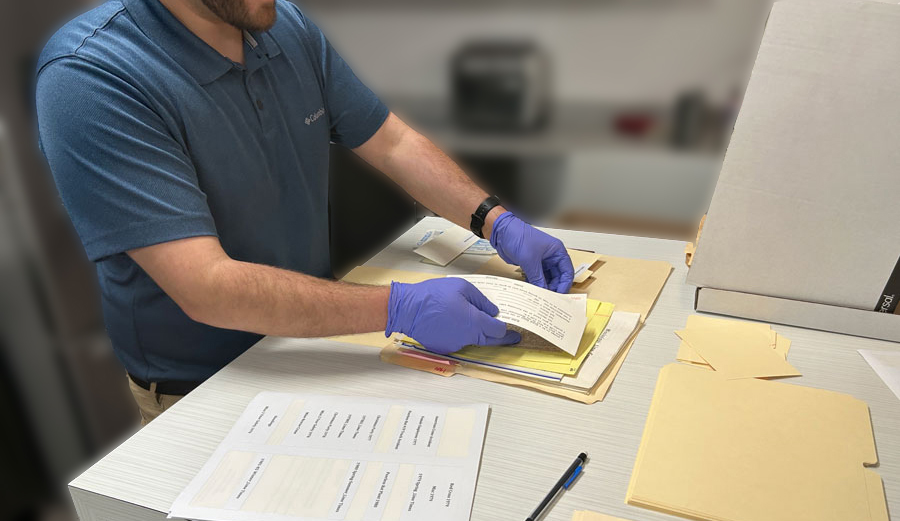
For MLC, the digitization of their corporate archives is not just a project; it is a celebration of their legacy and a beacon of their commitment to innovation and excellence. “It’s been a really nice story-building experience for us,” says Blankenship. “So many people didn’t know that we had all these photos because they were just shoved in file cabinets and no one really knew they were there. It’s been great.”
Are you ready to start your journey of preservation and digitization? Consider the legacy of taking action. What stories and impact will you be able to save for the future?


